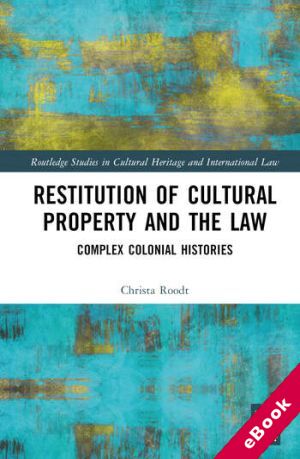We are now closed for the Christmas and New Year period, returning on Monday 5th January 2026. Orders placed during this time will be processed upon our return on 5th January.

The device(s) you use to access the eBook content must be authorized with an Adobe ID before you download the product otherwise it will fail to register correctly.
For further information see https://www.wildy.com/ebook-formats
Once the order is confirmed an automated e-mail will be sent to you to allow you to download the eBook.
All eBooks are supplied firm sale and cannot be returned. If you believe there is a fault with your eBook then contact us on ebooks@wildy.com and we will help in resolving the issue. This does not affect your statutory rights.
This book adopts a novel approach to the social question of restitution and repatriation of sacred cultural property and heritage acquired unethically during the colonial era. It uses an approach premised on better integration of law, ethics, history, anthropology, and provenance research.
To bridge the material and the sacred world in adjudication and policy formulation, a common definition of what the ‘sacred’ denotes in the context of colonial legacies is adopted as a viable methodology. ‘Sacred’ loot in private and public collections is defined based on clues imparted by disputes which are paradigmatic of the fragmentation that envelops the material, the systems of knowledge associated with that material, the structure and method of international law, subject specialisations, and the legal frameworks in play. The book suggests that the Parthenon Sculptures dispute and the parallel transnational litigation in the Zhanggong-Zushi Statue cases offer practical approaches for deconstructing hurdles and assumptions concerning historical claims in the secondary legal norms and tenets of PrIL.
It will be of interest to researchers interested in interdisciplinary work across the humanities and social sciences, including public and private international law, cultural property law, heritage law, and provenance research and practice.